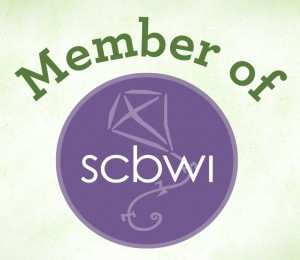Be Your Own Audience
I remember visiting my sister the year after StoryTellers had just come out. I had given my nephew David a copy, and he really wanted to play it with me. It’s a great game, and he’s a lot of fun to play with, but I’d spent so much time testing, playing, demo-ing, and selling it, that I just didn’t have the enthusiasm to give it another go.
That night, as I looked back on the day, I realized that I’d let him down, and I felt terrible. What kind of a game designer doesn’t want to play his own game?
That was back in 2008. The moment, and the lesson it taught, has stuck with me.
Whether you’re designing a game or writing a book, you spend a lot of time on your project. The cycle of creation, testing, and revision can be a long hard grind, and during that cycle, it’s vital that you’re detached enough to be able to hear and accept criticism.
How many times have you heard yourself (or another writer or designer) say “I’m just so sick of this thing!”
I know I’ve said it. All creators go through those lows, even the professionals.
Don’t believe me? Go to a writer’s conference and hang out in the bar for a few minutes.
In order to keep creating, though, you have to like what you’re doing. Just as important, you need passion to create things other people will be passionate about.
So… how do you deal with a project that you’ve burnt-out on? For me, the key is being my own audience. Here’s how:
Step 1: Know your audience.
I’m not a person who writes or designs for himself. I want people to read what I write, and I want them to play the games that I design. My goal is a product for other people to enjoy. This means that I always have my audience in mind, whether that audience is kids aged 8-12 years old, or families sitting down to play a game together.
Step 2: Take a break.
When you find yourself getting too negative about a project, take a break from it. Work on other things. Start a new book or a new game, or just go out and enjoy the world. Cleanse your mind of all the negativity you’ve built up about the project.
Step 3: Don’t be too long with your break!
The point of this process is not for us to run away from our tough projects. Take your break and move on to step 4.
Step 4: Be your audience.
Remember step 1? It’s time to be that audience. Writing for a 12-year old? Go climb a tree and open your book. Making a game for the hobby market? Call some friends and tell them you’re sick of testing, that you just want to play. Do whatever you can to take on the mindset of your intended audience.
It’s also important to think about what works for your audience, how they’ll experience your project. Making a game for people to play in a bar? Go to a bar. Writing a book you’re hoping kids will sneak at night after their parents have put them to bed? Climb under the covers with a flashlight.
Step 5: Find what works.
If you’re like me, it’s going to be hard turning off your critical brain. If you find you can’t ignore all those negative feelings, make a conscious effort to focus on the positives. Look for what works. In particular, find what works for your audience.
Step 6: Time for the Moment of Truth.
This is where the rubber hits the road. Does the project work? Did you get excited in step 5? Revved up to get creating again? If so, then get back to it! Use your new momentum to create something amazing. If not, if you can’t just can’t find any enthusiasm, it might be time to shelve the project.
One of the dangers of this step is listening to other people. Yes, it’s important to get feedback. Encouragement is wonderful, and discouragement should be considered. However, step 6 is all about you. Filter out all your advisors. Do you love the project?
Step 6 is the dreaded moment that nobody talks about, but remember that it’s not permanent. You can always come back to a project.
For my part, I have dozens of unpublished games, three unpublished novels, and a handful of unpublished picture books. Will I come back to them at some point?
Absolutely, but not until I find the fire and passion to make them amazing.
…and for the record, I still love playing StoryTellers!
Want to comment? Hit me up on Threads or Facebook!



